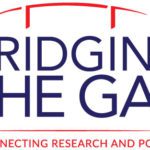In this era of COVID-19, teaching is done online. As universities ponder whether students would come back for virtual classes if campuses were to remain closed in the fall, a question came to my mind. If pursuing a PhD had been all about online classes and virtual experiences, would I still be an academic today? Maybe. But, most likely, no.
In any profession, mentoring is regarded as important. But in academia, this is particularly so. One’s ability to independently produce knowledge is gained in and through the social interactions with others who have been walking the path in pursuit of inquiry. When I first met Kate in 2004 as a first year PhD student, I was an international student who had just come to the United States two years earlier and had very little knowledge of the American academic environment. I was still training myself to express ideas in English, trying to make sense of how things worked in a new social, cultural setting. Looking back, it is due to those conversations and one-on-one interactions I have had with Kate during all these 16 years that I am leading a life as an academic now, mentoring my own students.
Becoming an academic and then living as one is rather a unique, long journey, often with bumpy roads. My definition of a happy academic is one who has such meaningful social relationships with other human beings that help find meaning in what we do and affirm our own place in the world along this journey. In this regard, Kate’s example teaches us at least three things about mentoring.
Talking to Kate… makes me feel what John Dewey called the “braveness and equanimity of soul,”
Kate was the kind of wonderful professor who students looked forward to talking to. Without a doubt, I was one of them. Students could have openhearted dialogue when they went see her during office hours. She was there mentoring me not just when I was writing and defending my dissertation, but when I was applying for jobs, giving practice job talks, and making a decision about the job offers. Sitting at a small table at Politics and Prose, I talked to her about my struggles and excitement about publishing my first book. To this day, talking to her somehow makes me feel what John Dewey called the “braveness and equanimity of soul,” even when things don’t go as planned.
Her behaviors as a person and the attitude toward students, colleagues, research, and teaching that I came to experience as a dissertation advisee and a teaching assistant were unpretentious and warm. She was cheerful and excellent all at the same time. I could just be myself when interacting with her; I could feel that she cared for my wellbeing and academic success.
Kate is an excellent scholar who understands human beings and the realities of the world, urging her students to see the deeper and greater causal patterns and mechanisms. I learned to think more clearly and articulate my ideas in an unapologetic tone and with confidence, while recognizing both universalities and particulars simultaneously. Many of the things she told me and showed me during my time at Georgetown and beyond are living within me in my research and teaching, and will continue to guide me and my students — to always be curious about people and the world.
This piece is part of a short forum on mentoring in academic careers in international affairs, written to honor Kathleen R. McNamara, Professor of Government and Foreign Service at Georgetown University, as recipient of the Society for Women in International Political Economy (SWIPE) 2020 Mentor Award. Others posts in this series can be viewed here and here.


0 Comments
Trackbacks/Pingbacks